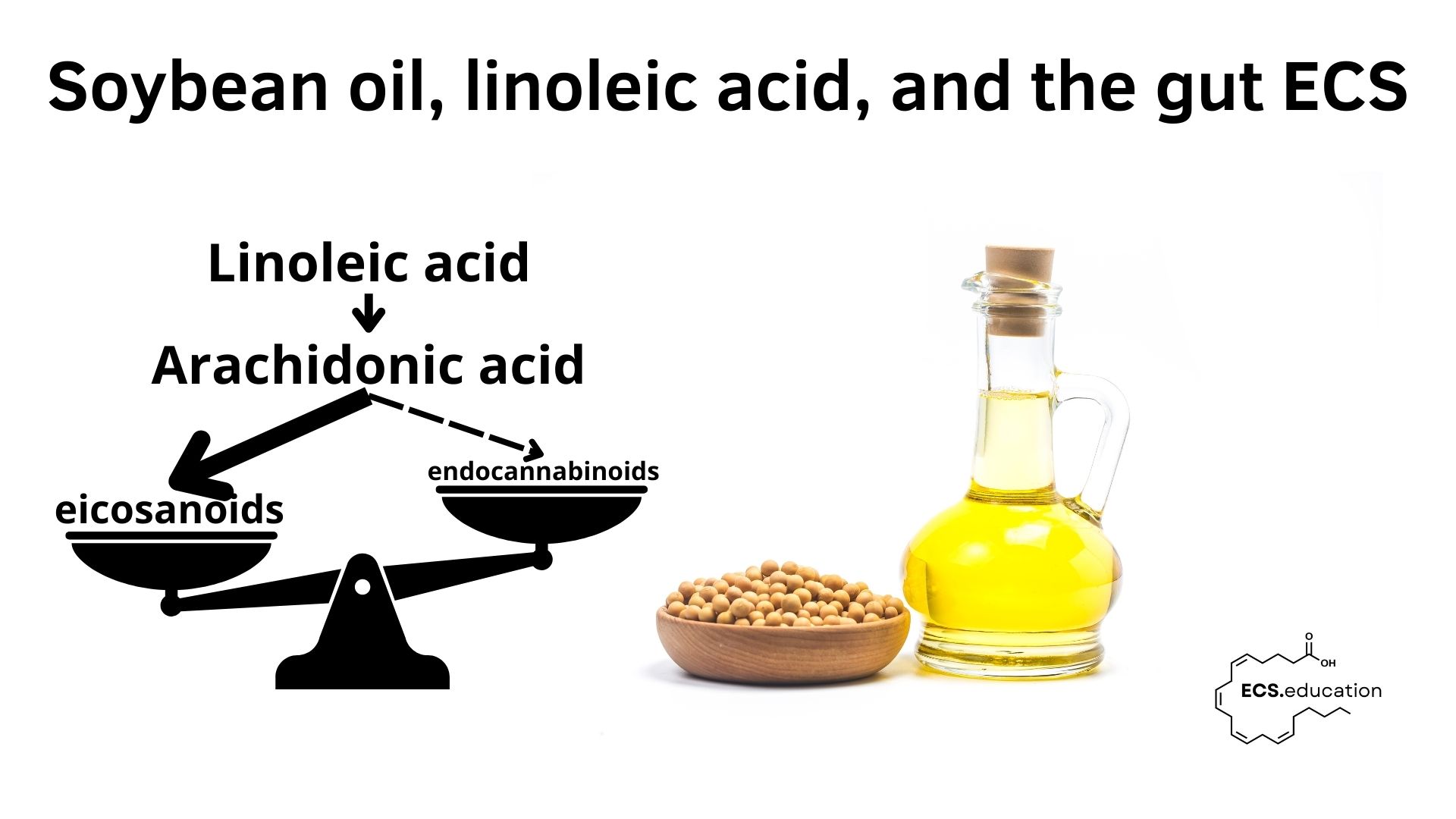A recent study titled ‘Diet high in linoleic acid dysregulates the intestinal endocannabinoid system and increases susceptibility to colitis in Mice‘ shows that eating a lot of linoleic acid from soybean oil changes lipid chemistry in the gut in a way that weakens the protective endocannabinoid system and strengthens inflammatory…
Tag: Endocannabinoid system
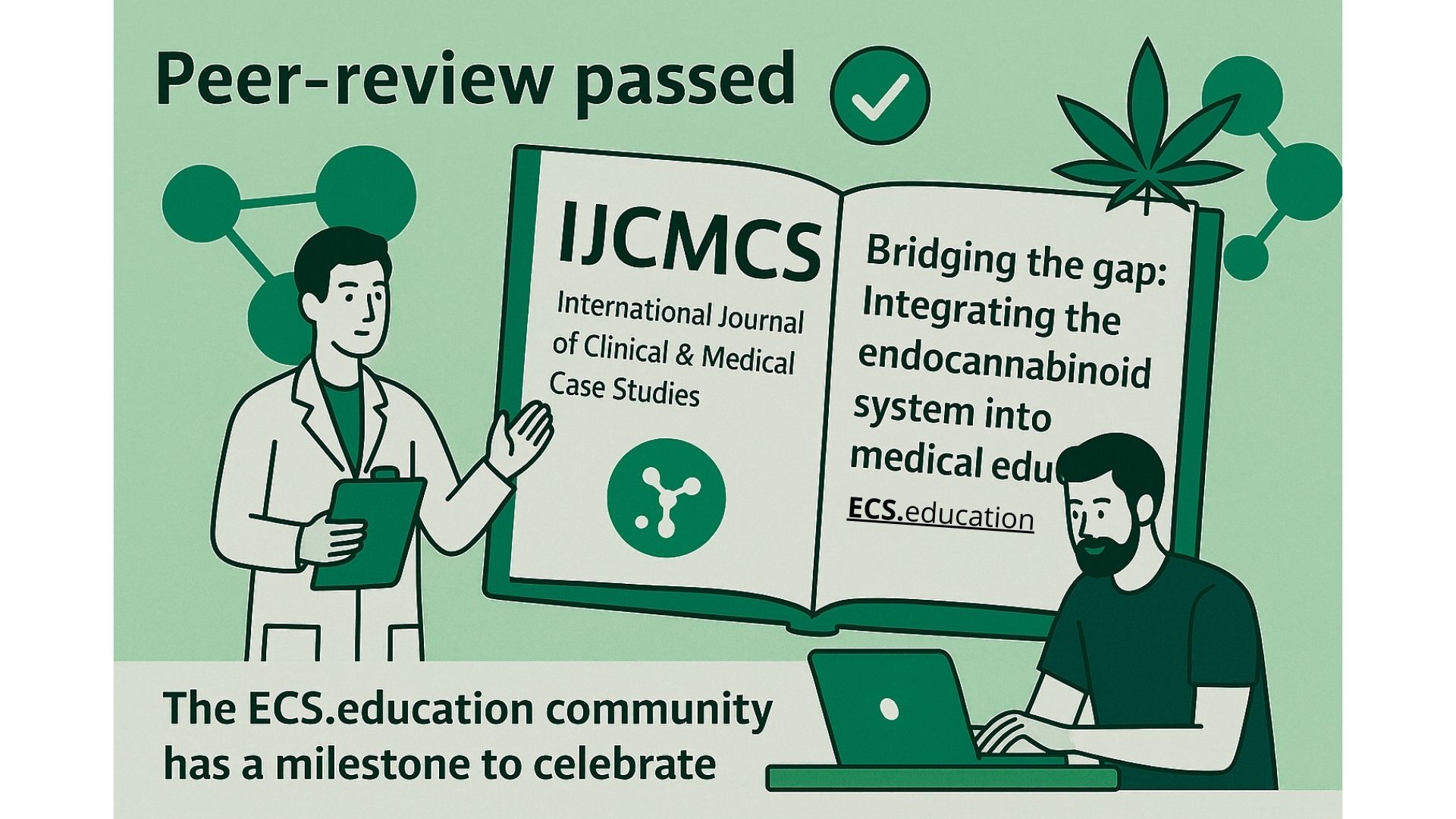
From Preprint to Peer Review: ECS.education Paper Accepted in IJCMCS
The ECS.education community has a milestone to celebrate: our manuscript, “Bridging the gap: Integrating the endocannabinoid system into medical education,” has passed independent, double‑blind peer review and is now published in the International Journal of Clinical & Medical Case Studies (IJCMCS). Built around three cornerstone ECS.education analyses, the paper consolidates…
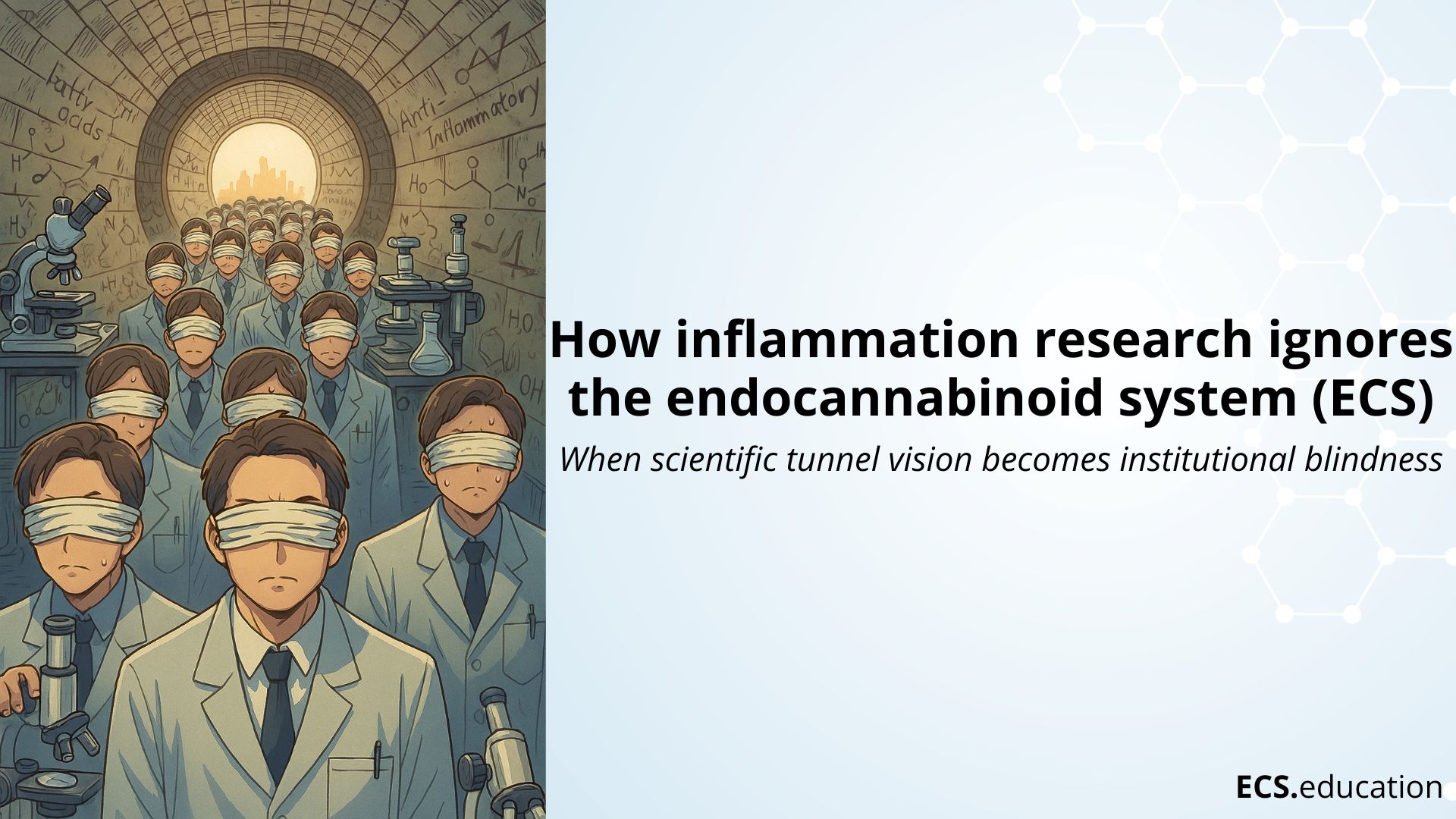
How Scientific Tunnel Vision in Inflammation Research Ignores the Endocannabinoid System (ECS)
When scientific tunnel vision becomes institutional blindness Lessons from history’s scientific blind spots Science has a troubling habit of missing the forest for the trees. For decades, gastroenterologists dismissed the idea that bacteria could cause stomach ulcers—until Barry Marshall proved Helicobacter pylori was the culprit by infecting himself. Geologists ridiculed…
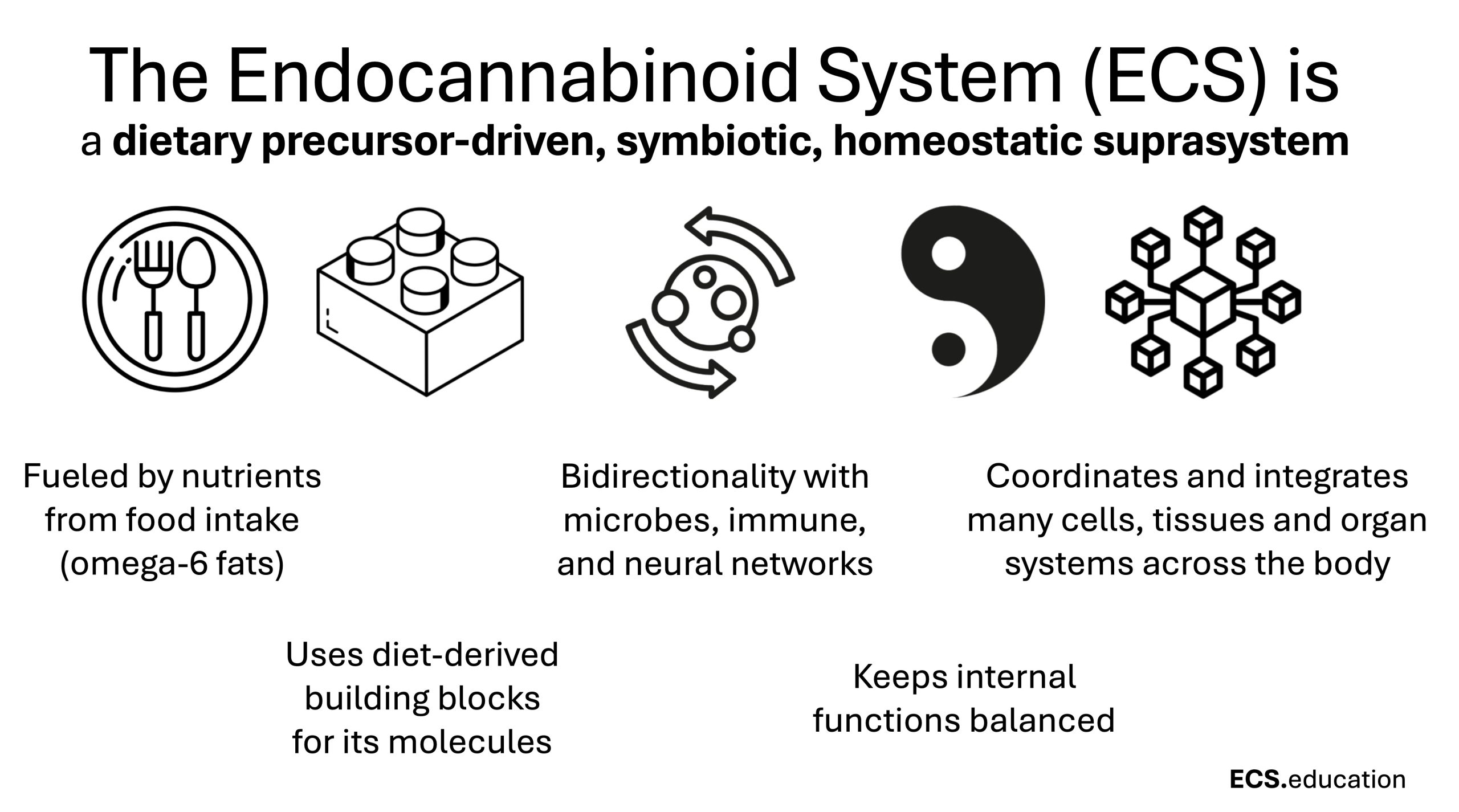
The Endocannabinoid System: Dietary Precursor-Driven ECS & Medical Education Gap
The Misunderstood Master Regulator The endocannabinoid system (ECS) is often considered the “cannabis system,” but this label ignores its true—and far broader and more important—role in holistic health. Instead of being defined by external substances, the ECS is a dietary precursor-driven, symbiotic, homeostatic suprasystem: a dynamic physiological network that maintains body-wide…

Obesity Rewires Your Endocannabinoid System (ECS): How Fat, Liver, Heart & Brain Are Transformed
Obesity is more than excess fat—it’s a disorder of endocannabinoid system (ECS) dysfunction. Explore how obesity rewires CB1 signaling in fat, liver, heart, and brain, driving chronic disease.

Paracetamol Confirmed as a Direct Analgesic DAGL Inhibitor: New Preprint Evidence
Important Note: This blog post discusses findings from a recent scientific preprint, meaning the research has not yet been formally peer-reviewed. Preprints allow for rapid dissemination of findings, but results should be interpreted cautiously until confirmed by peer-reviewed publication. Recently, we reported on a surprising new way that paracetamol (also known…

The Adiposity Filter: How Maternal Body Fat Reshapes Milk PUFAs for Your Baby’s ECS
At ECS.education, we’ve previously delved into how maternal metabolism and milk composition program infant development, the profound impact of maternal diet on the endocannabinoidome and infant health, and the links between ECS dysfunction, conditions like autism, and metabolic syndrome. Today, we explore compelling new research that adds another crucial layer to this understanding:…

Acetaminophen (APAP) & the ECS: A Surprising New Twist in How Tylenol Really Works
New research upends our understanding of how acetaminophen (paracetamol) provides pain relief via the endocannabinoid system. Discover how it directly inhibits DAGLα, reducing 2-AG levels – a surprising twist on conventional ECS wisdom. Explore the implications for future drug development.
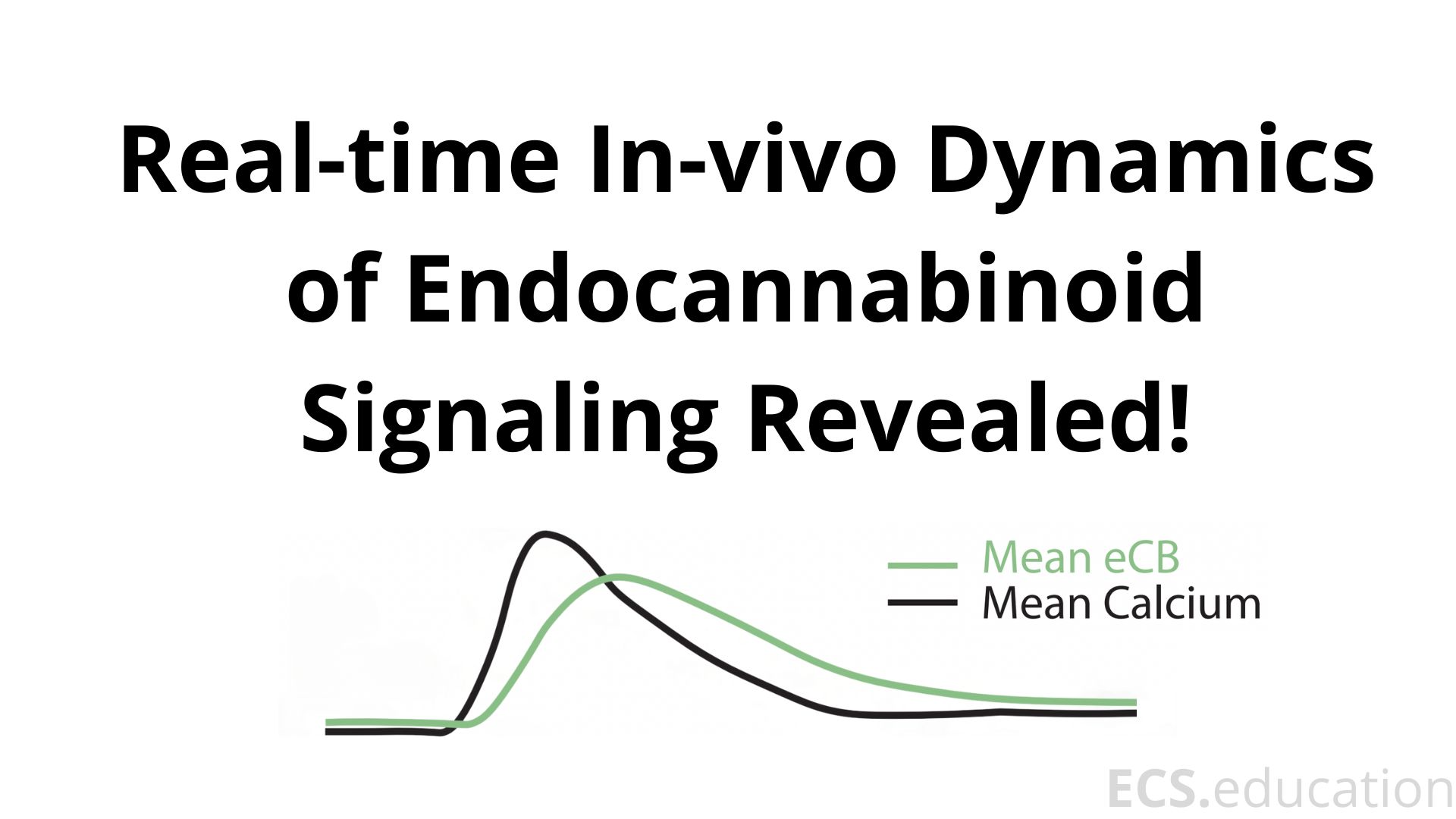
Seeing is Believing: New Tech Reveals How The Endocannabinoid System Works in Real-Time
A paradigm-shifting review in Neuron (Malhotra et al., 2025) highlights how new technologies allow scientists to visualize endocannabinoid (ECS) dynamics in real-time in behaving animals. This post breaks down the key breakthroughs, including the central role of 2-AG in rapid signaling, its precision, its function in memory and seizures, and the implications for healthcare professionals and medical cannabis.

Too Much Omega-6? New Link Shows Linoleic Acid Directly Flips a Master Metabolic Switch
Discover how dietary linoleic acid (LA), a major omega-6 fat, directly activates the master metabolic switch mTORC1 through a newly found pathway involving FABP5. Explore the implications for Metabolic Syndrome, potential interactions with the endocannabinoid system (ECS), and what this means for understanding modern diets.

